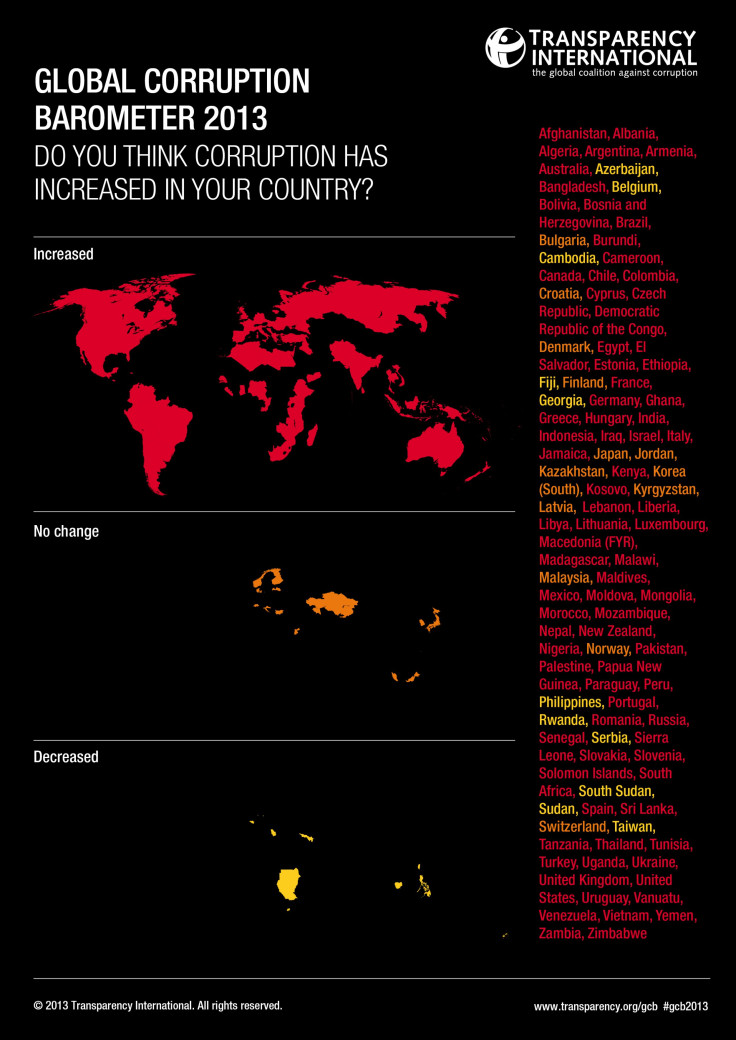Global Corruption Survey By Transparency International Leaves Little Room For Optimism

More than a quarter of 114,000 people surveyed worldwide, in 107 countries, paid a bribe in the last year, according to a fresh report from watchdog group Transparency International.
That discouraging figure shows no substantial improvement from previous editions of the Global Corruption Barometer, released yearly. Bribes to public services and institutions, like police or judicial officials, are a prerequisite for people in many countries to accomplish the most basic things, like opening businesses or buying homes, said the report.
Still, that result jars oddly with nine out of 10 people surveyed, who maintained that they would resist corruption. Global perception about corruption is also pessimistic, as a majority of those polled believed corruption has worsened in the past two years.
Trust in politicians also has a long way to go. In 51 countries, political parties are perceived as the most corrupt institution, while just over half of respondents said government is run by special interest groups.
“Ordinary people bear the cost of corruption,” reads the report’s introduction. “In many countries, corruption affects people from birth to death."
The Berlin-based transparency group also recounted individual tales of corruption, linking the recent Bangladesh factory collapse to acts of corruption, and reporting that some Zimbabwean women giving birth in hospital have been charged $5 for every scream they make.
In other examples, the report also said local officials in Nepal personally pocketed public money intended as incentives to help Nepalese women give birth safely in hospitals. In Azerbaijan, people routinely need to pay illegal fees to access crucial health care.
The group profiled individual countries, showing for example that in the U.S. two-thirds of respondents believed political parties and Congress were swayed by shady money.
The survey is the largest global opinion survey on corruption, according to Transparency International’s website.
© Copyright IBTimes 2024. All rights reserved.












